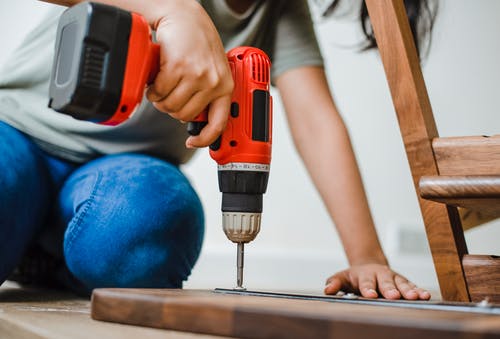A house fire can be a terrifying event, and it can cause significant damage to your property. In many cases, fires could be prevented if certain safety precautions were taken. This article will provide valuable insights on how to prevent household fire damage and what steps to take if a fire does occur.
Fire Damage Restoration
In the unfortunate event of a fire, fire damage restoration involves a series of steps to restore your home to its pre-fire condition. This might include repair of fire, smoke, and water damage, cleaning up hazardous materials, and odor removal. It’s crucial to seek help from professionals who specialize in this field.
Preventing Household Fire Damage
Fire Safety Checks and Maintenance
Maintaining and regularly checking fire safety appliances should be a top priority. Below are some guidelines:
- Smoke Detectors: Regularly test and check your smoke detectors to ensure they function correctly. Replace the batteries at least twice a year, and consider installing interconnected smoke alarms for enhanced safety.
- Fire Extinguishers: Inspect your fire extinguishers regularly to ensure they are in working order and easily accessible in emergencies. Familiarize yourself with the proper usage of fire extinguishers and their specific firefighting classifications.
- Home Clutter: Regularly declutter your home to eliminate potential fire hazards. Dispose of any unnecessary flammable materials, and keep storage areas tidy and well-organized to minimize the risk of accidental fires.
- Electrical Safety: Conduct routine inspections of your electrical appliances and cords to identify any signs of wear and tear or improper wiring. Address any electrical issues promptly and refrain from overloading electrical outlets or using damaged cords.
- Gas Leak Precautions: Be vigilant for any signs of gas leaks, such as the smell of gas or hissing sounds. If you suspect a gas leak, evacuate the premises immediately, refrain from using any electrical switches, and contact a professional gas technician to address the issue.
Safe Cooking Practices
Most household fires are caused by cooking. Here are some safety tips:
- Supervision: Never leave food cooking unattended, especially on stovetops or in ovens. Remain attentive and vigilant while cooking to prevent the occurrence of kitchen fires.
- Clearance and Safety: Maintain a clear and unobstructed area around the stove or cooking area. Keep combustible items, such as kitchen towels and papers, away from open flames to minimize the risk of accidental ignition.
- Fire Containment: Always keep a lid nearby when cooking to promptly smother small fires and prevent them from spreading. Avoid using water to extinguish grease fires, as it can exacerbate the situation.
Proper Use of Heaters and Fireplaces
Improper heaters can quickly result in a dangerous situation. When using a heater or fireplace, follow these guidelines:
- Clearance: Maintain a safe distance of at least three feet between heating equipment and any flammable materials, including furniture, curtains, and clothing, to prevent the risk of ignition.
- Supervision: Exercise caution and supervise children and pets when heaters or fireplaces are used to prevent accidental contact and potential fire-related incidents.
- Turn Off Appliances: Before leaving the house or going to sleep, ensure that all heaters and fireplaces are turned off to prevent the risk of unattended fires or overheating.
Safe Smoking Practices
If you smoke indoors, exercise extreme caution. Some tips include:
- Smoke Only in Designated Areas: Designate specific areas for smoking inside the house, preferably with proper ventilation. This helps contain the odors and smoke, reducing the risk of fire hazards and health issues caused by secondhand smoke.
- Avoid Smoking When Tired or Drowsy: Refrain from smoking indoors when you are tired, as there is an increased risk of accidentally falling asleep with a lit cigarette, which can lead to a fire.
- Properly Dispose of Ashes: Dispose of ashes in a metal container, and ensure they are cold before discarding them. Hot ashes can easily ignite nearby combustible materials.
- Keep Lighters and Matches Out of Reach: Store lighters and matches in a safe place, out of reach of children and pets. This prevents them from accidentally starting a fire.
Restoring Property After Fire Damage
After a fire, property restoration is important in getting back to normalcy. Companies like the one on this site, www.puroclean.ca, offer services to help clean, restore, and rehabilitate a property. Skilled professionals can remove soot, ash, and smoke that persist after firefighting efforts. They can also conduct structural repairs if required.
Reducing Fireplace Smoke
Reduce fireplace smoke in your home by ensuring proper ventilation and conducting regular chimney cleaning. Also, use dry, seasoned wood that burns with less smoke than wet or fresh wood. Additionally, consider investing in an EPA-certified wood stove, which produces less smoke and is more energy efficient.
Conclusion
Preventing household fire damage requires a proactive approach. Regular maintenance and checks, responsible cooking and smoking habits, and using heaters and fireplaces can greatly reduce the fire risk. However, in case the unthinkable happens, immediate actions and professional help for property and fire damage restoration can help turn a terrible experience into a chance for renewal. Protect your home and loved ones by implementing these precautions today.

